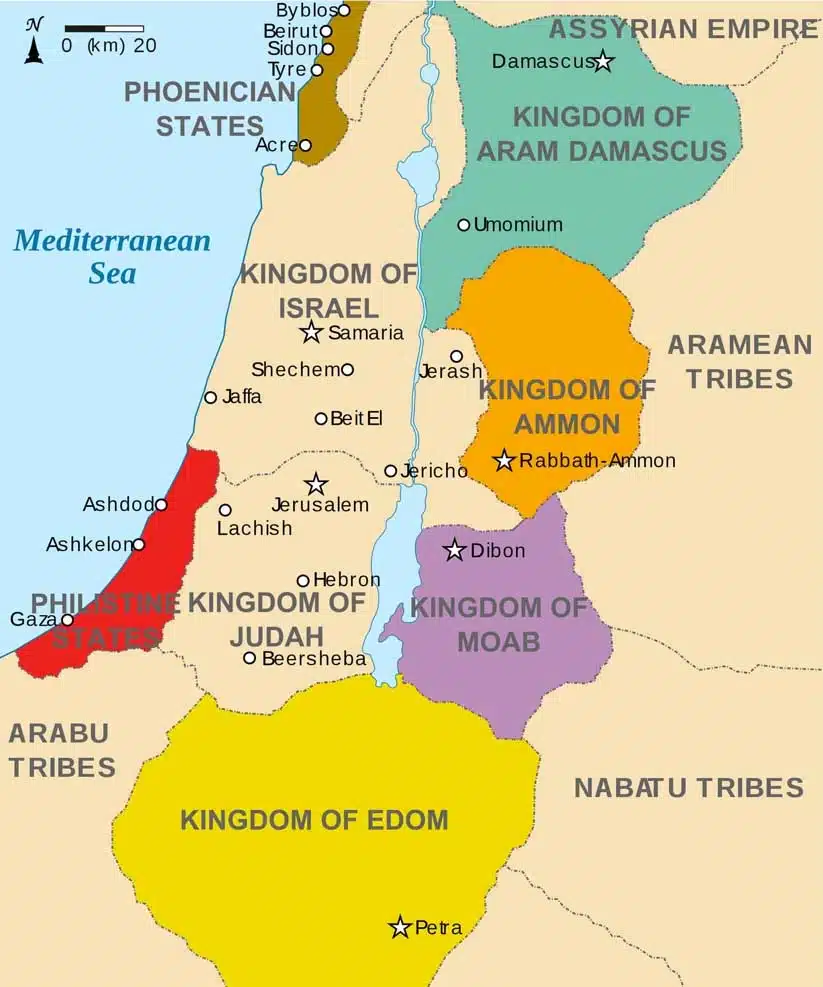Ruth commits to following Naomi wherever she goes and following her God. She returns to Bethlehem with Naomi.
Naomi now finds herself without a husband, and without any sons to care for her. One Moabite daughter-in-law decides to return to her family in Moab while Ruth chooses to remain with her. Ruth states to Naomi Do not urge me to leave you or turn back from following you; for where you go, I will go, and where you lodge, I will lodge. Your people shall be my people, and your God, my God. Where you die, I will die, and there I will be buried. Thus may the Lord do to me, and worse, if anything but death parts you and me. This is quite an amazing statement of commitment.
Naomi relented when she saw that she was determined to go with her.
Naomi and Ruth completed walking the journey of sixty or so miles from Moab until they came to Bethlehem. It seems clear that Bethlehem is a small village because when they had come to Bethlehem, all the city was stirred because of them. Two women showing up in town was big news. Although it had been ten years, since Naomi’s departure, she was still remembered. Again, this indicates the village was small without much change. The women said, “Is this Naomi?”
Naomi replied to the question by making a play on the meaning of her name. She said to them, “Do not call me Naomi; call me Mara, for the Almighty has dealt very bitterly with me. Instead of continuing to go by the name Naomi that means “pleasant,” she now wants to be called Mara with the meaning of “bitter.”
Naomi does not try to hide her loss. She tells the village women that she went out full, but the Lord has brought me back empty. Naomi attributes her calamity to God, saying the Almighty has afflicted me.
Naomi chose to return to Bethlehem at the beginning of barley harvest.
Biblical Text
15 Then she said, “Behold, your sister-in-law has gone back to her people and her gods; return after your sister-in-law.” 16 But Ruth said, “Do not urge me to leave you or turn back from following you; for where you go, I will go, and where you lodge, I will lodge. Your people shall be my people, and your God, my God. 17 Where you die, I will die, and there I will be buried. Thus may the Lord do to me, and worse, if anything but death parts you and me.” 18 When she saw that she was determined to go with her, she said no more to her.
19 So they both went until they came to Bethlehem. And when they had come to Bethlehem, all the city was stirred because of them, and the women said, “Is this Naomi?” 20 She said to them, “Do not call me Naomi; call me Mara, for the Almighty has dealt very bitterly with me. 21 I went out full, but the Lord has brought me back empty. Why do you call me Naomi, since the Lord has witnessed against me and the Almighty has afflicted me?”
22 So Naomi returned, and with her Ruth the Moabitess, her daughter-in-law, who returned from the land of Moab. And they came to Bethlehem at the beginning of barley harvest.
Check out our other commentaries:
-
Exodus 21:28-36 meaning
This passage is concerned with other things that could cause injury to a person and their livelihood. A violent ox, the loss of livestock by...... -
Hosea 13:9-11 meaning
The LORD announces Israel’s destruction because the people turned against Him. God will destroy their military and political establishments, leaving them with no source of...... -
Revelation 2:14-15 meaning
Jesus warns the believers in Pergamum against the false teachers in their midst who are like Balaam, a prophet from the book of Numbers, who...... -
Romans 10:18-21 meaning
Paul is making it very clear that the Jewish people have heard this message of faith but have chosen to reject it....... -
Numbers 2:3-9 meaning
The three tribes assigned to the east side of the tabernacle were Judah, Issachar, and Zebulun. These tribes were to move out first ahead of......



